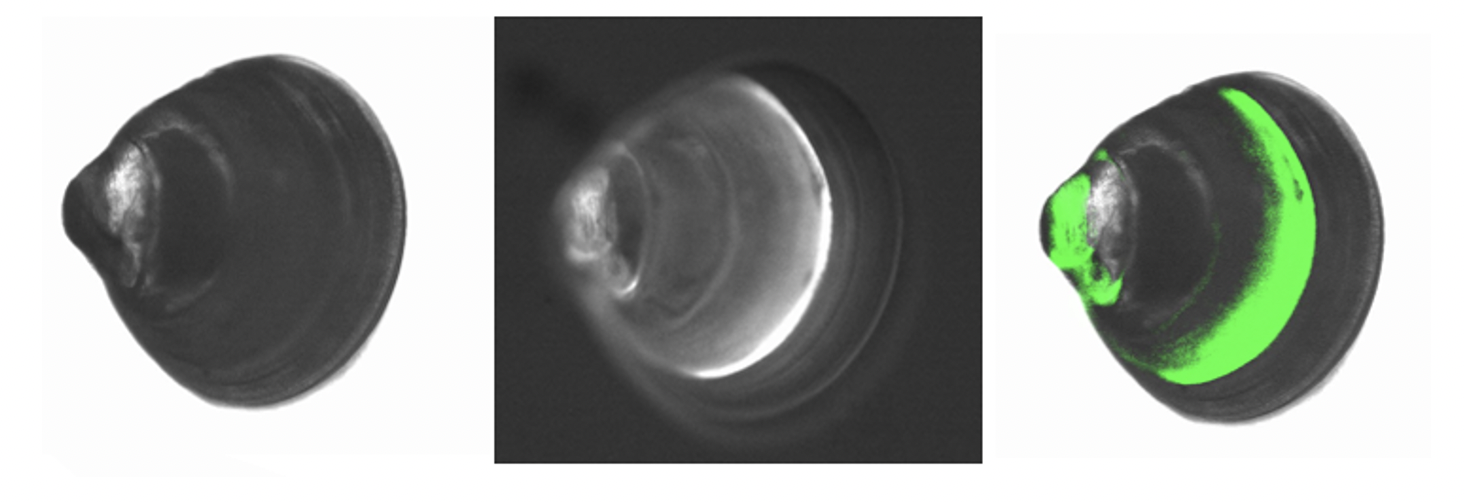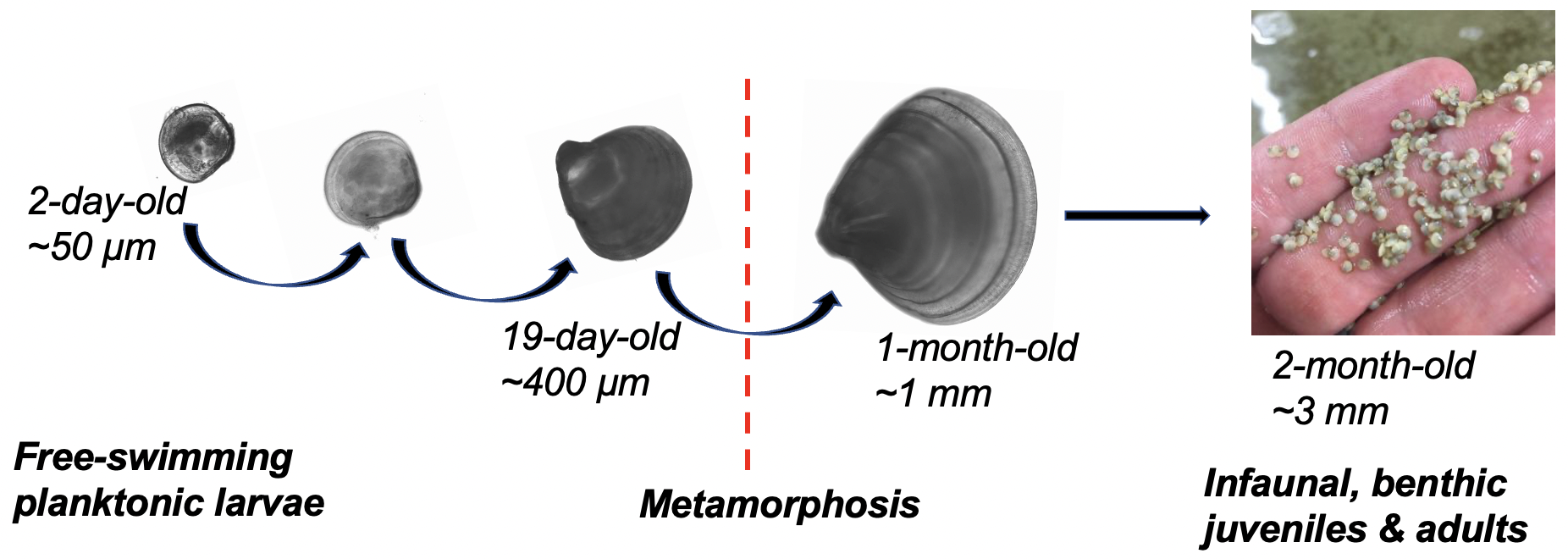Welcome!
Broadly, I am a marine invertebrate enthusiast and evolutionary ecologist. My interest in the marine world and science has been, in part, shaped by my love of nature and my past involvement with the St. Mary's River Watershed Association doing oyster restoration and community outreach. I am particularly interested in mechanisms of rapid adaptation to climate change, including how acclimation and phenotypic plasticity shape tolerance to environmental stressors.
Postdoctoral Fellow, UMass Amherst (Cheng Lab)
Currently, my post-doctoral research focuses on identifying energetic and fitness tradeoffs involved in thermal tolerance of the oyster drill Urosalpinx cinerea. For my post-doc work, I am simulating seasonal, temperature regimes in the laboratory for low-, mid-, and high- latitude native (Atlantic) populations across a natural thermal gradient, and in invasive (Californian) populations. This study aims to evaluate tradeoffs in growth, energy storage, and reproduction among these genetically differentiated and locally adapted populations.
Currently, my post-doctoral research focuses on identifying energetic and fitness tradeoffs involved in thermal tolerance of the oyster drill Urosalpinx cinerea. For my post-doc work, I am simulating seasonal, temperature regimes in the laboratory for low-, mid-, and high- latitude native (Atlantic) populations across a natural thermal gradient, and in invasive (Californian) populations. This study aims to evaluate tradeoffs in growth, energy storage, and reproduction among these genetically differentiated and locally adapted populations.

Ph.D, Ecology & Evolution, Stony Brook University
(Thacker lab | Peterson Lab )
My Ph.D. investigated the effects of multiple stressors (warming, acidification, and hypoxia) on larval and early juvenile hard clam (Mercenaria mercenaria) on microbial community assembly and energy metabolism (respiration rates, total carbohydrates: lipids: protein). Focusing on the carry-over effects of embryonic and larval exposure on juvenile performance, I used plasticity in the energy metabolism and turnover in microbiomes to infer fitness consequences of pH x DO and pH x temperature stress.
(Thacker lab | Peterson Lab )
My Ph.D. investigated the effects of multiple stressors (warming, acidification, and hypoxia) on larval and early juvenile hard clam (Mercenaria mercenaria) on microbial community assembly and energy metabolism (respiration rates, total carbohydrates: lipids: protein). Focusing on the carry-over effects of embryonic and larval exposure on juvenile performance, I used plasticity in the energy metabolism and turnover in microbiomes to infer fitness consequences of pH x DO and pH x temperature stress.
M.A. Applied Ecology, Stony Brook University (Padilla Lab)
During my masters’ and as part of a collaborative NY Sea Grant with Milford NOAA, I assessed population-level responses to ocean acidification in blue mussel (Mytilus edulis) populations from low to highly variable environments in the Long Island Sound.
During my masters’ and as part of a collaborative NY Sea Grant with Milford NOAA, I assessed population-level responses to ocean acidification in blue mussel (Mytilus edulis) populations from low to highly variable environments in the Long Island Sound.


